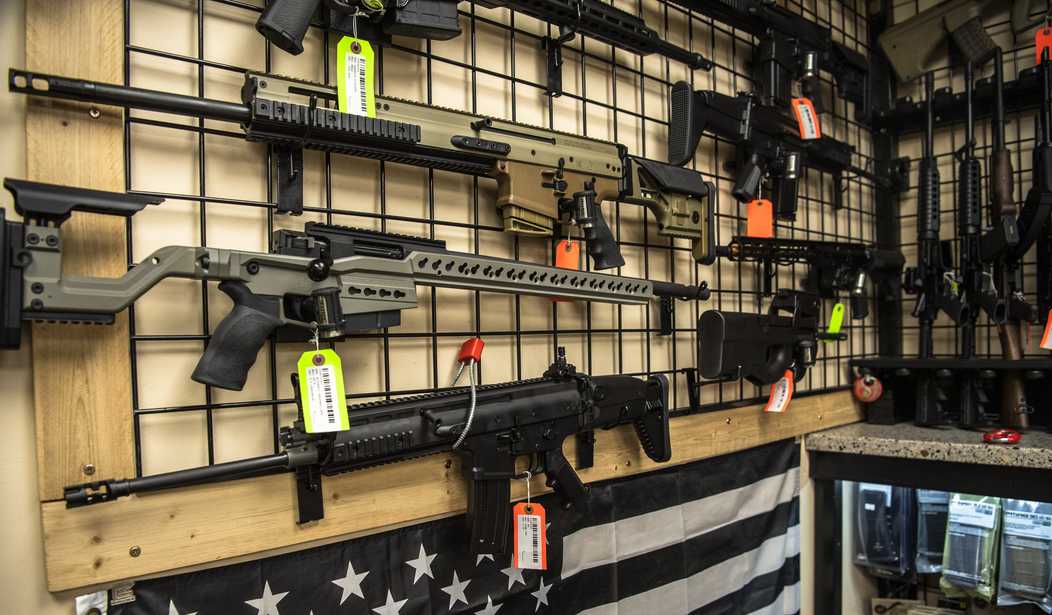In a not totally unexpected but still disappointing decision, a three-judge panel on the Seventh Circuit Court of Appeals has stayed a lower court decision striking down Illinois' ban on so-called assault weapons and large capacity magazines, allowing the law to remain in effect while the state's appeals continue.
In the relatively brief order released by the panel, the judges chided McGlynn for supposedly not complying with two federal rules, but the meat of their decision rests on the premise that "the laws have enough support to remain in place pending the final resolution of plaintiffs' suit."
Every other court of appeals that has addressed the validity of similar legislationin the wake of New York State Rifle Association v. Bruen has come out the same way as Bevis. The laws addressed by those decisions differ in some respects from the Illinois statute. Yet the absence of support in other circuits for the district court’s disposition lends strength to a conclusion that the Illinois statutes should remain in force until final appellate resolution.
At least two other essentially identical suits are pending in other district courts within the Seventh Circuit. The three suits were addressed jointly in Bevis, and they must be resolved the same way eventually. (The state laws cannot be valid in some parts of Illinois and invalid elsewhere.) This does not necessarily imply that the three cases will again be consolidated on appeal; we are reluctant to delay disposition of this appeal indefinitely just because similar litigation is pending in other districts. Still, the only way to preserve the status quo statewide is to enter a stay in this suit.
The plaintiffs could still file an emergency appeal with the Supreme Court, but the justices have been reluctant to intercede in 2A cases, at least before these lawsuits have been fully decided on the merits. The Court is also set to consider granting cert to Snope v. Brown later this month, and that challenge to Maryland's "assault weapons" ban has been fully adjudicated by the lower courts, culminating with an en banc decision by the Fourth Circuit upholding the ban under the spurious argument that semi-automatic rifles are essentially no different from the select-fire rifles used by the military, and are therefore beyond the scope of the Second Amendment's protections.
Judge McGlynn, it should be noted, thoroughly dismantled that argument in his ruling that found Illinois' law an infringement on our Second Amendment rights.
Regardless of its external appearance, the Court holds that an AR-15 is, frankly, not at all the same weapon as the M16 rifle or M4 carbine used by the United States military. First and foremost, the M4 has semiautomatic, fully automatic, and three-round burst modes of fire available; the AR-15 is only capable of semiautomatic fire. As discussed supra, this critical distinction has been noted by the Supreme Court this past term. The majority held [in Cargill v. Garland] that “a semiautomatic rifle equipped with a bump stock is not a ‘machinegun’ because it cannot fire more than one shot ‘by a single function o the trigger.’ And, even if it could, it would not do so ‘automatically.’” Therefore, by virtue of its lack of a burst or automatic fire setting, an AR-15 categorically cannot be a machinegun.
... Critically, the M16 and M4 are military-issue weapons subject to exact standards of military specificity and rigorous quality-insurance inspections; the AR15 by definition cannot and does not have the same standard of quality assurance. Notably, M16s/M4s are designed for increased wear-and-tear and have a barrel that is capable of sustained firing without overheating.
Setting emotional reactions aside, comparing an AR-15 toan M16 is like comparing a military-grade Humvee to the Hummer H3 released to the civilian population. Its resemblance to the military version is not a coincidence—it is a feature marketed to appeal to the average, law-abiding consumer of such products. Just like the camouflage print clothing and accessories worn by civilians,the similarly of military accessories to the civilian counterpart does not inherently designate it as being “military-grade.”
The Seventh Circuit panel that granted the stay will also oversee the appeals process, but hopefully the Supreme Court will have granted cert to Snope by the time the Seventh Circuit is ready to hear oral arguments. The Court is set to consider the case for the first time in its December 13th conference, and a decision to accept or reject the case could come by the end of the month.









Join the conversation as a VIP Member